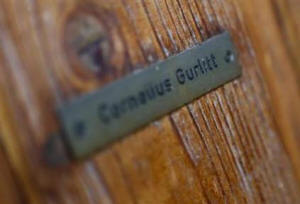 |
|
 Munich
art hoarder's lawyer awaits proof of trove's looted status
Munich
art hoarder's lawyer awaits proof of trove's looted status
[January 30, 2014] BERLIN (Reuters) — The lawyer of a German recluse who hoarded a trove of Nazi-looted art said on Tuesday he was still waiting for German authorities to provide "clear evidence" that the paintings had been stolen.
|
Hannes Hartung said his client was prepared for a "fair and
open dialogue" with claimants searching for looted works, but
that it was up to the authorities to demonstrate that the
paintings they confiscated in 2012 did not belong to him. Germany has faced heavy criticism for its handling of the
discovery of 1,407 works in the flat of Cornelius Gurlitt, an
elderly recluse whose father took orders from Hitler to buy and
sell so-called 'degenerate art' to fund Nazi activities. Gurlitt, who moved freely for decades between Germany, Austria
and Switzerland to sell pieces from his collection, aroused
suspicion in 2010 when German officials found him on a train
crossing the Swiss border with a very large sum of cash. When authorities raided his apartment in 2012, they found a
collection of Modernist and Renaissance masterpieces valued by
media reports at an estimated 1 billion euros ($1.37 billion). Hartung said he expected most of the artworks to be returned to
Gurlitt, though none had been so far. "I'm still waiting for clear evidence," Hartung told Reuters in
a telephone interview. "They just started this rant and they didn't provide any reason
for it (being confiscated) so far," said Hartung. German authorities say 590 of the seized works are suspected to
have been looted from Jewish families and other victims of the
Holocaust. Greg Schneider, executive vice president of the Jewish Claims
Conference, said the aim was to get the works of art back to
their "rightful" owners, adding that he was hopeful that they
would be. "Mr. Gurlitt's announced stance, even at this late stage, will
hopefully help to bring a swift resolution to this injustice,"
he said. ($1 = 0.7319 euros) (Reporting by Monica Raymunt; editing by Gareth Jones) [© 2014 Thomson Reuters. All rights reserved.] Copyright 2014 Reuters. All rights reserved. This material may not be published,
broadcast, rewritten or redistributed.
|


